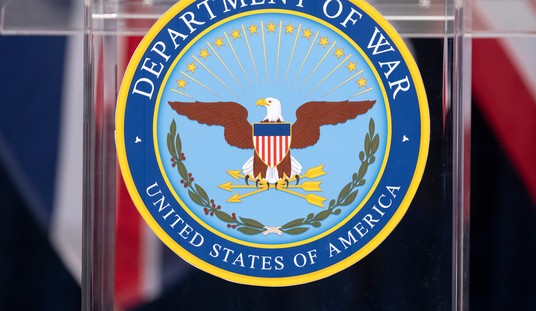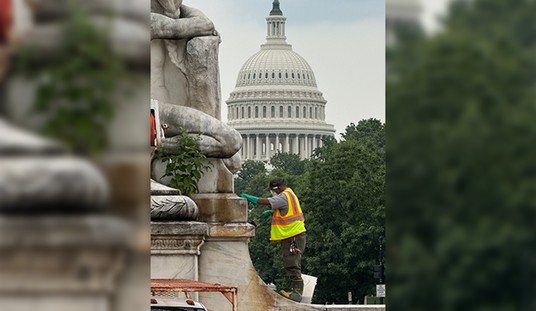In the aftermath of the tragic demise of five crew members aboard the ill-fated Titan submersible, I have concluded a couple of things. One, I believe that the hull shouldn’t have been constructed from carbon fiber, based on a bunch of expert options, and logical reasoning. Second, an experimental craft or vessel should not be used in exploration tourism. And, for Mars, the implications of that bother me.
An Oceanic Phobia
I’m terrified of the ocean, I always have been. It was my first memory in life. My family was planning a beach trip, I was scared of sharks because I was aware of Spielberg’s Jaws (yeah, I know that guy sucks) and instead of being reasonable and explaining the realities of the beach trip, my family relentlessly teased me, saying they would throw me in the ocean and I would be attacked by sharks. Oh, well. Forever fear: unlocked.
While I followed the Titan story closely, imagining what their experiences might be like, and prayed for their safe return… I also couldn’t relate. Forgive me if being vulgar offends you, there was just an indelible sense of ‘f that’ inscribed deeply in my primal existence. I’ve pretty much been a land mammal, as designed. I can’t even understand why people live in swamplands with dinosaurs, I mean alligators. That’s just me.
Due Credit
While I may have an aversion to the seas, I also hold respect for those who don’t. As I watched the U.S. Coast Guard’s Rear Admiral John Mauger in the Thursday press briefing about the discovery of the Titan’s debris, I was reminded of what some of our best and bravest volunteers do. The Rear Admiral continuously stated that it was an “incredibly unforgiving environment.”
My grandpa was Navy, a true sailor. My great-uncles were aboard the U.S.S. West Virginia when our military was attacked at Pearl Harbor. A rarely mentioned peril of that historic event was revealed in an account that my grandmother’s brother Richard Hall gave. The twins were among the men who organized to execute a rescue mission, and the only Marines to return to the burning ship. Richard recalled it, saying:
It wasn’t a volunteer thing exactly. It was just a–a movement. Something that was needed. We went back the same way we came, 12 or 15 of us. There were no other marines. A petty officer assumed authority.
The selfless and heroic rescue acts are eternally impressive and appreciated, but it was another revelation that struck me to the core, perhaps because of my ocean aversion. Back then, Richard reported, a lot of the service members could not swim. He said the only reason that he and his brother were able to swim in the fiery waters to Ford Island after conditions on the ship required rescuers to abandon it was that my great-grandmother had insisted they take swimming lessons, Richard said:
My brother couldn’t get one of his shoes off, so he went in with one on. We slid down a line into the water and began to swim. In high school Mother wanted us to learn to swim, and we took lessons at another high school. We weren’t distance swimmers or anything, but it was enough. You’d be surprised how many sailors and marines couldn’t swim.
While I can scoff over the risks and great unknowns of the ocean (there are monsters in there, right?) I just wanted to take a moment to tell our service members that I respect the hell out of you for being out there and facing those elements and dangers, courageously. And, to remind us all that some people volunteered to do so, without even knowing how to swim. Imagine being that brave.
The allure of the Martians
But, I’m a hypocrite, too. (Aren’t we all? At least I’m an honest one!) While fearful of the ocean, I’m somehow fascinated by Elon Musk’s quest to Mars. I don’t know how he sold me the idea, but at some point, I decided I might tag along.
Have you ever said, “Get me off of this planet!”? I have. I just realized that I kind of meant it. What I have never said is, “Put me miles under the ocean so I can visit an old, watery graveyard.”
I’m no astrophysicist or astronomer. Truth be told, my ACT score was a degree of magnitude above my ASVAB test results. As for engineering, geology, or any related space travel subject matter: I can’t say I understand any of it.
What I can tell you is that I’ve dreamt -as in while sleeping- of being on Mars. It’s like I’ve been there before. I saw it. And, that’s weirdly exciting. I retold the dream during an introduction once, I was shaking hands with somebody who has a personal rapport with Musk. So, as a commonality and subject matter to bond over– the mutual interest of Mars was invoked.
This led to me telling retelling the dream, but mid-way through an interesting comparison was interjected: I was told that when I spoke of Mars, it reminded them of how Elon appears when he speaks about it. Excitable, giddy, or something like enthusiasm.
Part of that enthusiasm leads to imagined scenarios of the U.S. government trying to impose control on the Martian citizenry. It goes like this:
U.S.: GET BACK DOWN HERE! You’ve been drafted to go fight a war!
Martians: …No.
While I can write up imaginative scenarios that we could opt out of as independent Martians, and draw an observer’s comparison to the biggest Mars-life frontiersman, some people busy their minds by spinning up other ideas.
Regulation in Space Travel
Without missing a beat, society has already decided that because a bad thing happened at the bottom of the ocean, means we need to crack down on things not happening in the ocean and things that aim to happen on other planets.
Here’s one on-cue demand for regulation:
“There’s a strong concern that not having those safety regulations is going to mean some fly-by-night, shady operations that result in customers being injured or potentially killed,” said Brian Weeden, director of program planning for the Secure World Foundation, a space sustainability nonprofit pushing to curb space junk and for better space traffic management, among other things.
Listen, I don’t know what the phrase “space junk” means, I just realize that it has a negative connotation. Apparently, the space exploration community is doing something terribly wrong, junkin’ it up out there… while the transgressions against the galaxy are left undefined, there’s a tax-exempt nonprofit to shame us over it.
Three companies currently offer commercial space travel, SpaceX, Virgin Galactic Holdings Inc., and Blue Origin LLC operate under an “informed consent” framework. With the 2004 Commercial Space Launch Amendments Act, which granted an eight-year regulatory moratorium on the FAA’s oversight of commercial space activities, the standard of informed consent in space travel arose. While the moratorium has been twice extended since then, it is set to expire in October.
SpaceX did develop its Crew Dragon passenger capsule according to NASA’s safety requirements, as it is used for transporting astronauts to the International Space Station. Currently, SpaceX is the only company of the three that actually launches adventurers into orbit.
Ahead of the upcoming CSLAA moratorium expiration, the FAA is taking preliminary steps to create a safety framework for commercial human spaceflight. Rep. Frank Lucas (R-OK) Chair of the House Committee on Science, Space, and Technology, said on Friday that the committee is examining regulations on commercial space travel, while not providing specifics. Lucas said:
It’s very important and it’s a growing slice of the industry. Let’s see how we work it out.
In the aerospace industry-heavy “free state of Florida,” as Gov. Ron DeSantis would call it, a law signed last month made companies free from liability and required specific language in the informed consent disclosures.
Read More:
Mars Calls for Pioneers
I think there’s an important distinction to be made while considering regulations. Unlike tourism, the journey to Mars isn’t about sightseeing or a show of status. It’s about building a society: pioneering. It’s about pushing the envelope on the limitations of human existence. The whole thing is inherently experimental. We’re trying to live on a radioactive planet, where the low atmospheric pressure would boil your blood, meanwhile, the whole place is well below freezing.
We can groan over the costs of the Titan search and rescue, which was a somewhat futile mission as the catastrophe happened before there was any hope to respond, but I think it’s another juxtaposition. There won’t be taxpayer-funded search and rescue missions to Mars. Generally speaking, it’s not happening. I mean maybe in an advanced society there could be a critical supply haul with a 9-month delivery process, but I digress…
For the record, though, rescue is part of the U.S. Coast Guard’s operating budget. It’s part of what they do as a core mission, and they don’t seek reimbursement from people who become stranded victims of the unforgiving ocean.
I wrote above that I had concluded that experimental craft shouldn’t be used in tourism. Tourism should be safe and reasonably regulated, even if through privatized industry-standard certifications. But, we cannot let people looking for vacation thrills get in the way of the Mission to Mars.
Yes. We expect a lot of people to die on Mars. Those words are direct from Major Martin Musk, himself. It won’t be safe. Return won’t be guaranteed, or even likely. It isn’t a planetary “tour;” it’s exploration until expiry.
But, we sure aren’t going to another planet to pretend it’s a jurisdiction of any Earthly government, that should aim to regulate its safety. Keep your tourists safe. As for Martians, like their Supreme Leader, Mayor of Tweet Town Elon Musk says, “I would like to die on Mars, just not on impact.”














